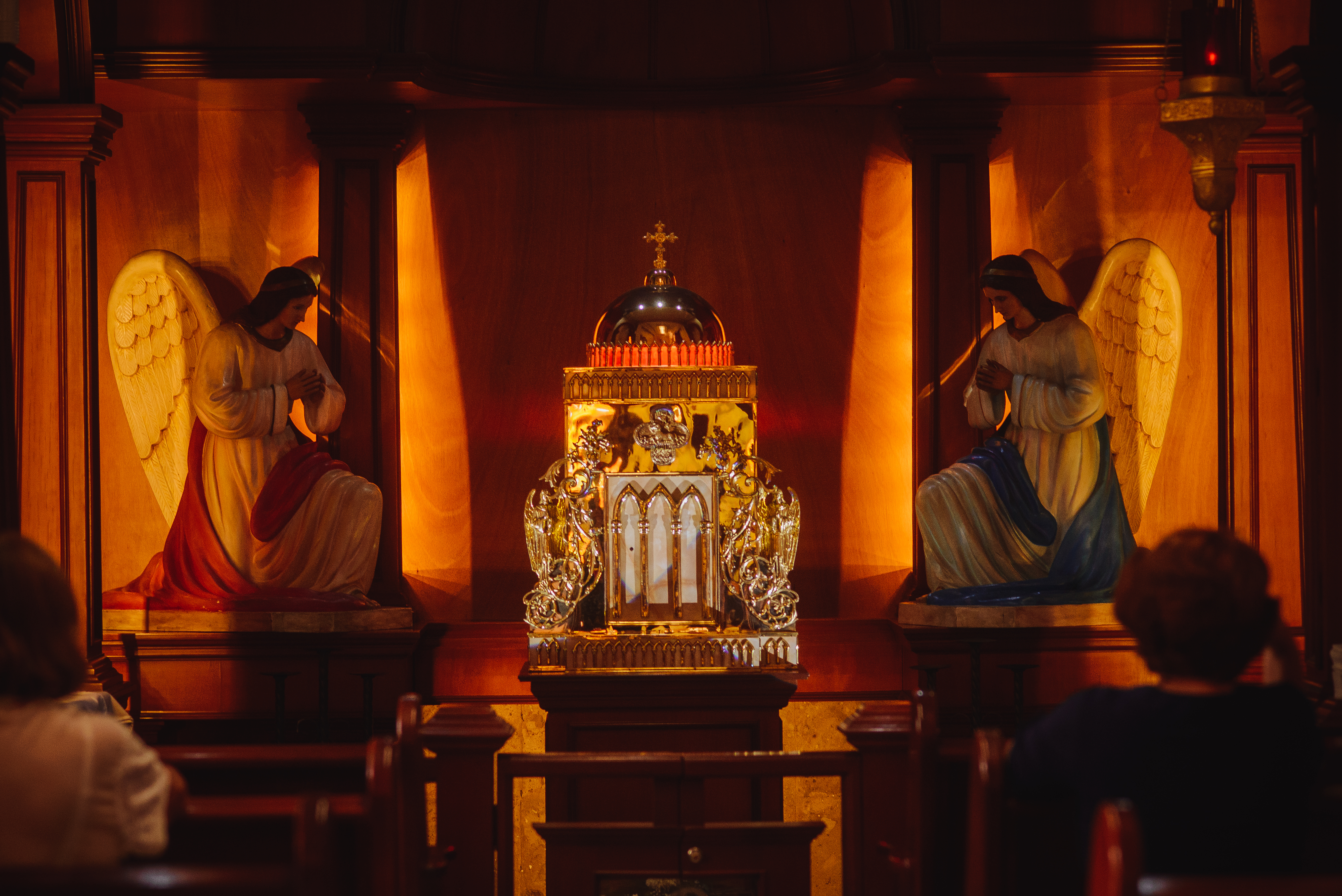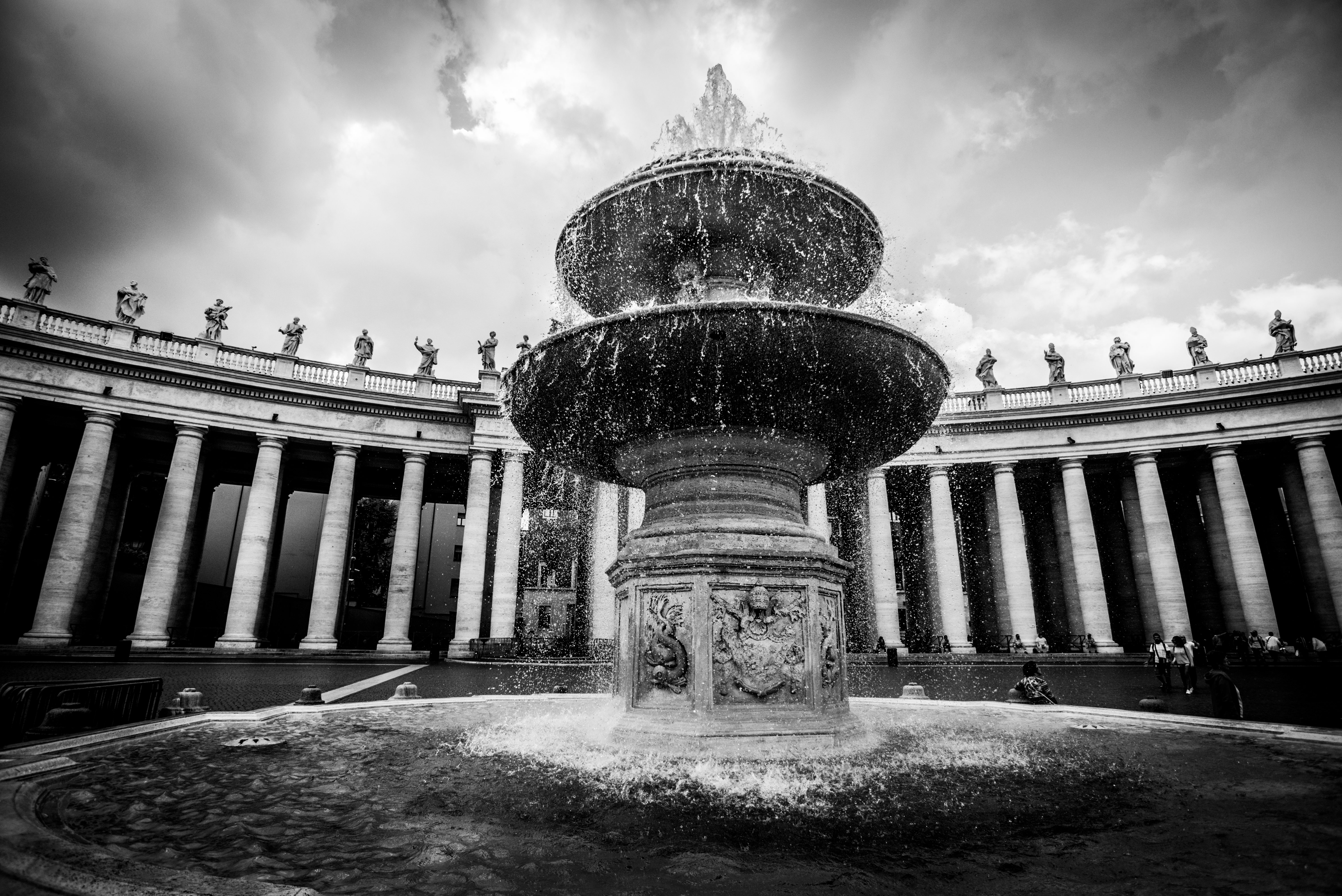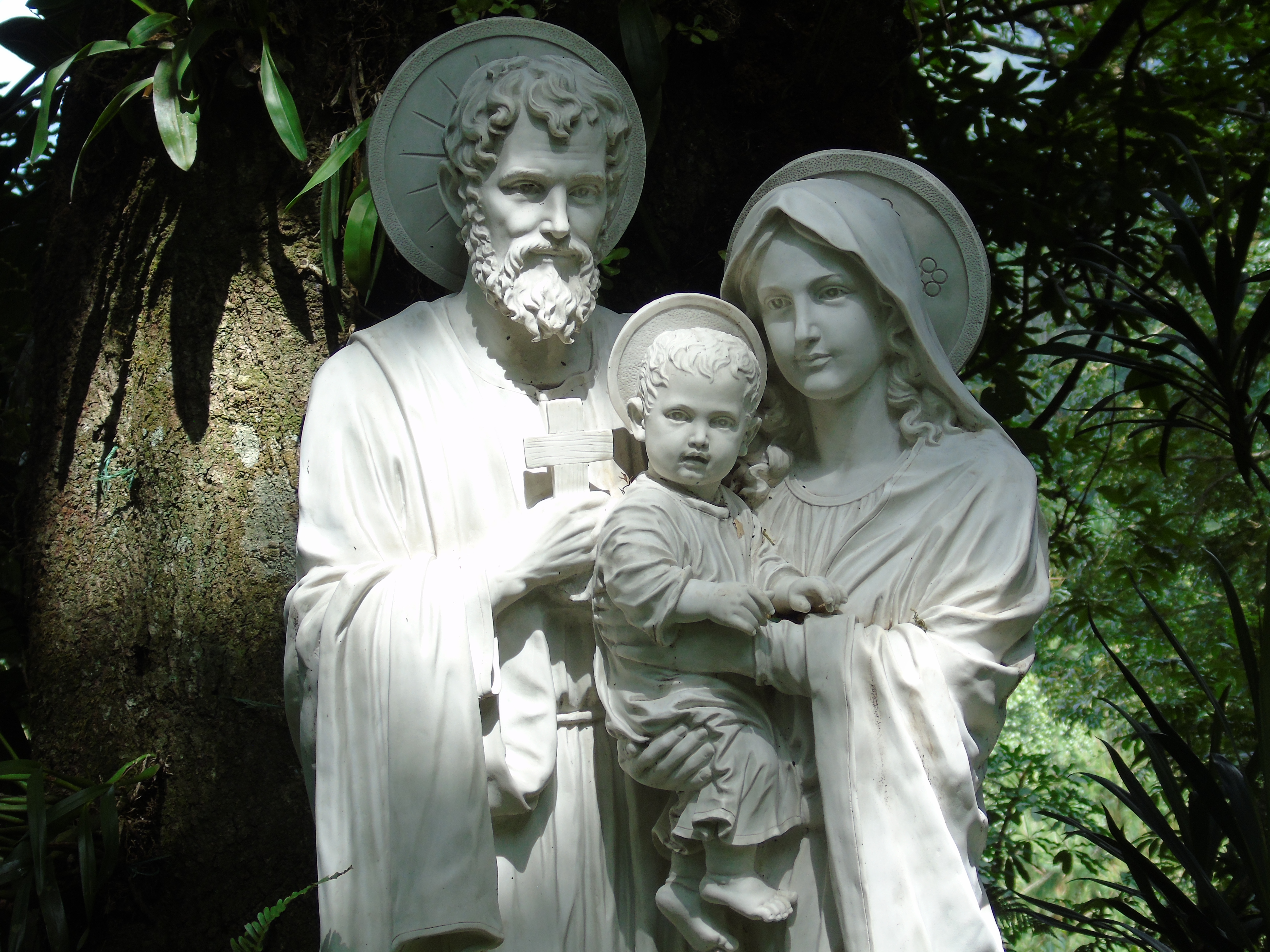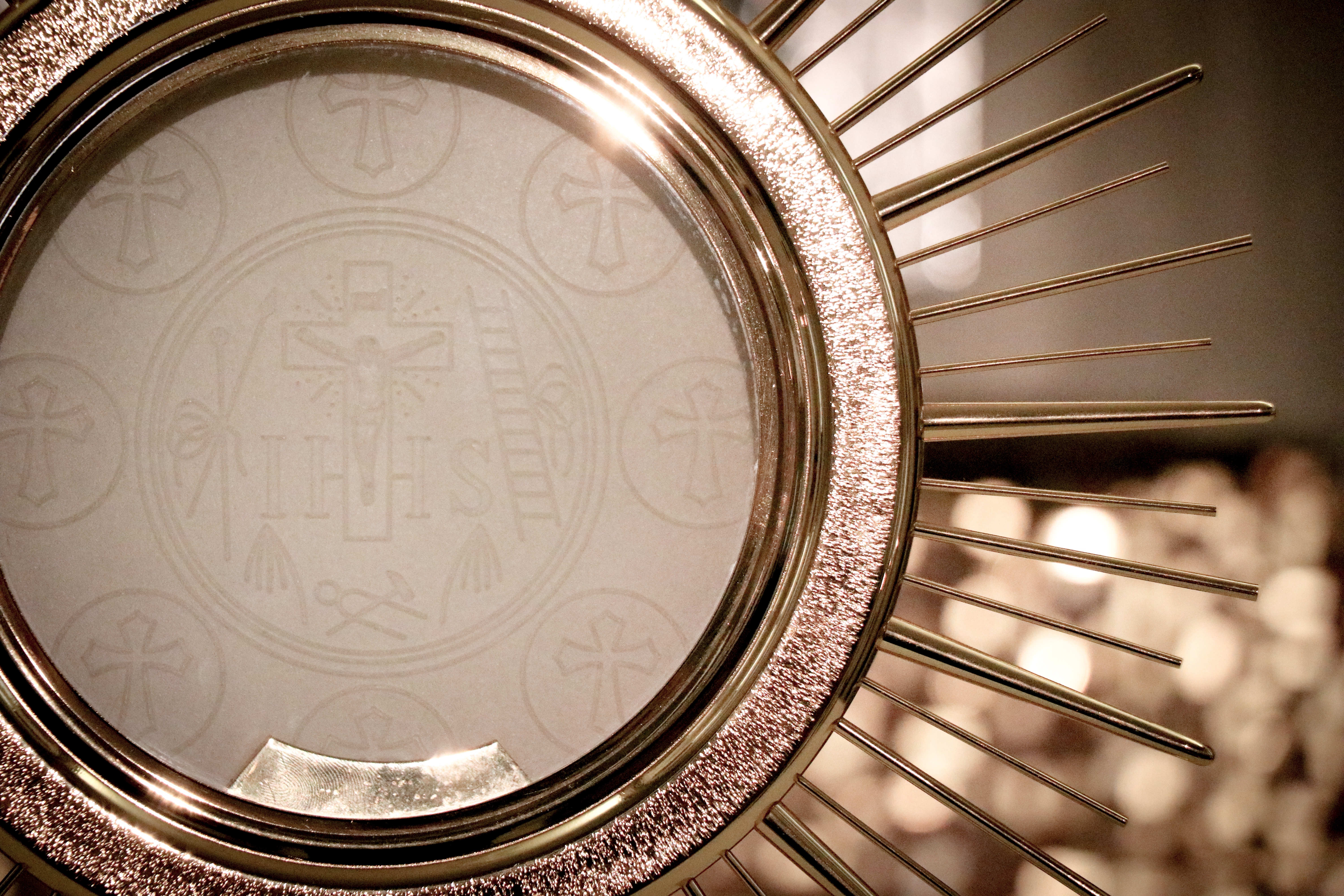“Let justice descend, O heavens, like dew from above… Let the earth open and salvation bud forth” (Isa 45:8). This line from Isaiah, used in both our First Reading and our Psalm, forms the basis for the beautiful Advent hymn “Rorate Caeli” (Drop down, oh heavens). The reflection that the Church has done on this theme gives us food for thought as we near the end of Advent.
The words of “Rorate Caeli” express repentance for the sins of Israel and sorrow at the suffering they have experienced. “We have sinned, and we are made, like unto our uncleanness, and we have all fallen like a leaf.” “Behold the Holy City is made a desert, Zion has been made a desert, Jerusalem is desolate.” The Chosen People have sinned gravely against God and have endured terrible misfortune. They are awaiting the Messiah, who will save them from their pitiful state and redeem them. Interspersed throughout the verses is the refrain of supplication, “Rorate caeli desuper” or “Drop down dew, ye heavens, from above” “And let the clouds rain down the Just One.” Israel asks for the Messiah: “Send forth the Lamb, the ruler of the earth.”
In the final verse, God speaks to His people and tells them not to fear: “Be comforted, be comforted, my people, Thy salvation will come quickly.” “I will save thee, be not afraid, For I am the Lord thy God.” The Messiah is coming to redeem them; They need only wait in humble expectation.
Mary is a model for us as we approach the Nativity of Our Lord. She received the news of the Incarnation, not fully understanding how it could be, and resolved to humbly accept God’s will. She attentively prepared for the coming of Christ, nurturing Him throughout her pregnancy, and gave birth to Him in the middle of the night in Bethlehem.
Advent is a time of eager expectation, a time of dawn, not yet the full day of Christ’s presence and ministry, but the time of preparation for His coming. Reflecting on such texts as Isaiah 45:8, Isaiah 7:10–15, and the Annunciation, primes us with an attitude of meditative expectation of the Messiah, who is to come very soon.
As we enter into the last ten days of Advent, let us attempt to retreat inward for a while, reflecting on the coming of Christ in the flesh, His presence in our lives, and His coming at the end of the world. As the hymn indicates, let us recall our own failures and misfortunes and turn to the Savior for comfort and redemption. He is coming soon, and if we are attentive we will be there to welcome Him.
“Dejen, cielos, caer su rocío… que la tierra se abra y haga germinar la salvación” (Is 45, 8). Esta línea de Isaías, utilizada tanto en nuestra Primera Lectura como en nuestro Salmo, forma la base del hermoso himno de Adviento “Rorate Caeli” (desplegable, oh cielos). La reflexión que la Iglesia ha hecho sobre este tema nos da que pensar ahora que nos acercamos al final del Adviento.
Las palabras de “Rorate Caeli” expresan arrepentimiento por los pecados de Israel y dolor por el sufrimiento que han experimentado. “Hemos pecado, y hemos sido hechos como nuestra inmundicia, y todos hemos caído como una hoja seca”. “He aquí, la Ciudad Santa se ha convertido en un desierto, Sión se ha convertido en un desierto, Jerusalén está desolada”. El Pueblo Elegido ha pecado gravemente contra Dios y ha sufrido terribles desgracias. Están esperando al Mesías, que los salvará de su lamentable estado y los redimirá. Intercalado a lo largo de los versos está el estribillo de la súplica, “Rorate caeli desuper” o “Dejad caer rocío, cielos, desde lo alto” “Y que las nubes lluevan sobre el Justo”. Israel pide al Mesías: “Envía el Cordero, el soberano de la tierra”.
En el versículo final, Dios le habla a su pueblo y le dice que no tema: “Sea consolado, sea consolado, pueblo mío, su salvación vendrá pronto”. “Yo te salvaré, no temas, porque yo soy el Señor tu Dios”. El Mesías viene a redimirlos; Solo tienen que esperar con humilde expectativa.
María es un modelo para nosotros al acercarnos a la Natividad de Nuestro Señor. Recibió la noticia de la Encarnación, sin comprender del todo cómo podía ser, y resolvió aceptar humildemente la voluntad de Dios. Ella se preparó atentamente para la venida de Cristo, alimentándolo durante su embarazo, y dio a luz en medio de la noche en Belén.
El Adviento es un tiempo de ansiosa expectativa, un tiempo de amanecer, no todavía el día completo de la presencia y el ministerio de Cristo, sino el tiempo de preparación para Su venida. Reflexionar sobre textos como Isaías 45,8; Isaías 7,10-15 y la Anunciación nos prepara con una actitud de espera meditativa del Mesías, que vendrá muy pronto.
Al entrar en los últimos diez días de Adviento, intentemos retirarnos por un momento, reflexionando sobre la venida de Cristo hecho carne, Su presencia en nuestras vidas y Su venida al fin del mundo. Como indica el himno, recordemos nuestros propios fracasos y desgracias y volvamos al Salvador en busca de consuelo y redención. Viene pronto, y si estamos atentos estaremos presentes para recibirlo.
 David Dashiell is a freelance author and editor in Nashville, Tennessee. He has a master’s degree in theology from Franciscan University, and is the editor of the anthology Ever Ancient, Ever New: Why Younger Generations Are Embracing Traditional Catholicism.
David Dashiell is a freelance author and editor in Nashville, Tennessee. He has a master’s degree in theology from Franciscan University, and is the editor of the anthology Ever Ancient, Ever New: Why Younger Generations Are Embracing Traditional Catholicism.
Feature Image Credit: ray807, cathopic.com/photo/3960-amanecer-de-la-vida











